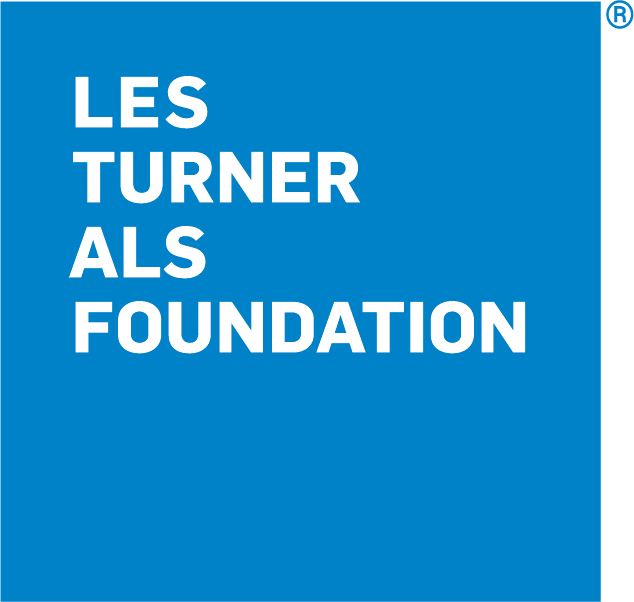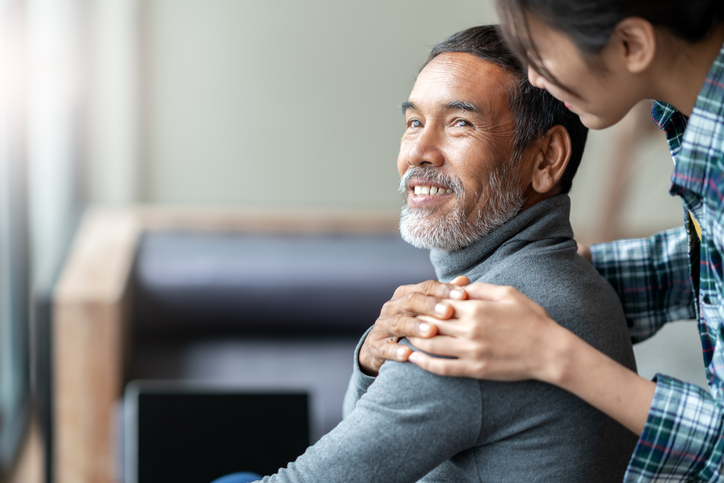An ALS diagnosis can change someone’s life overnight. Becoming an ALS caregiver, however, is a role and an identity that you grow into.
Caring for a loved one with ALS can be extremely challenging, but it can also be very rewarding. It’s natural to feel overwhelmed at times. You may find yourself losing patience and then feeling guilty as you watch someone you love enduring this terrible disease.
Being an ALS caregiver is never easy. But there are a few things to know that can help you prepare – and assist in preventing and dealing with caregiver burnout.
1. You can’t do it all by yourself
“It’s difficult to be a caregiver,” says Anne Lidsky, PhD, a support group facilitator for the Les Turner ALS Foundation. “You love your spouse, sibling, parent, or adult child, and you suffer watching your loved one struggle, but at times you feel physically and emotionally depleted. You question if you’re understood, appreciated, and you may be in real need of a thank you or a loving gesture.”
Asking for outside help can be hard, but there’s no way you can handle all the responsibilities of caregiving by yourself. Being honest about when you need help will not only prevent burnout but will also make it possible for you to continue providing the best quality of care to your loved one.
Bear in mind that many people who want to help you may not know how to help. Have a list of small tasks ready for when people ask what they can do, like picking up a few things from the grocery store or helping with dinner on a certain night. Give clear, specific instructions on what you want done and how you want it done.
2. Children feel ALS caregiver burnout, too
Most home care for people with ALS is provided by family caregivers. Children may assist with tasks like tying shoes, feeding, and cleaning, or helping with transfers between a bed and a mobility device. However, children often receive inconsistent training, which affects their confidence. You may feel so overwhelmed with things to do that you assume your child will know where they need to step in – as an adult would.
Having children help with caregiving is not something to feel bad about. But it is important for kids to feel supported to prevent burnout, distrust, and resentfulness. When possible, invite your children to attend family trainings with healthcare professionals. Take time to explain how they should complete tasks and why you need their help.
Many children report that being a caregiver makes them feel good. Family caregiving is a team effort – and they’re part of your team. By helping, they are creating lasting, powerful memories with a loved one.
3. Caring for yourself isn’t selfish – it helps you provide better care
Many caregivers feel like they are failing their loved one by not doing enough each day. But your own health and well-being are at the root of your ability to provide better care. Don’t neglect things like daily exercise, a well-balanced diet, and good quality sleep. Short breaks throughout the day are important, too.
Your ALS care team is there to support you too – not just the person with ALS. They can help with the difficult questions you’re facing, including ways to prioritize taking care of yourself. They can also share tools and resources to help you manage schedules more effectively and make decisions about care, home modifications, and more.
Some organizations offer respite grants for ALS caregivers so you can take a short amount of time away from your care duties. This promotes well-being for both the caregiver and person with ALS and helps prevent caregiver burnout. Making sure you meet your own physical and emotional needs will help both you and your loved one with ALS.
4. Intimacy is necessary for a healthy relationship
As you adjust to your new role as an ALS caregiver – and your partner adjusts to the ever-changing experience of living with the disease – parts of your relationship may fall by the wayside, including sex and physical intimacy. Amid all of the demands on your time and attention, you might feel like it’s inappropriate or even impossible to focus on intimacy. And as your partner finds themself asking for assistance with tasks that used to be routine, they may feel the same.
Intimacy is an important aspect of your well-being, though, and that doesn’t stop after your partner is diagnosed with ALS. Lack of intimacy can lead to emotional detachment. You may have to redefine what physical intimacy means in your relationship, but it does not have to come to an end.
As you and your partner with ALS have sex, communication is a priority. Express your needs and concerns with your partner and let them express theirs, and be open to trying new things. It’s possible to find techniques that work for both of you. Although you may not be accustomed to talking about sex with outsiders, your ALS care team can help you come up with solutions to maintain an intimate connection with your partner, even after their ALS diagnosis.
5. Other ALS caregivers understand
ALS caregivers share a common experience. There are free online ALS support groups that are exclusively for caregivers, held without loved ones with ALS present. In caregivers-only support groups, participants can openly and honestly share what is on their minds without worry of hurting the person they love.
These groups offer space to talk about all the issues caregivers face in a non-judgmental, accepting atmosphere. It’s a powerful experience to realize that you are surrounded by others who truly understand what it means to be a caregiver.
“People rarely miss a session once they have attended a single, embracing gathering,” says Dr. Lidsky. “We shed tears together, we laugh together, and we talk about forgiveness of self and the ever-present need to re-adjust to a new normal. And most importantly, we listen. The support groups have become people’s lifeline and a unique source of friendship.”
Bottom Line
It’s hard to be an ALS caregiver, and your role will change over time as your loved one’s ALS continues to progress. There will be difficult and heartbreaking moments. However, with the challenges of ALS caregiving come beautiful moments of clarity.
“The ordinary can become extra-ordinary by being in the moment,” says Dr. Lidsky. “Say ‘I love you’ often. Don’t wait to be overcome with a feeling of tenderness to act. Hold your loved one’s face in your hands and gently offer a kiss. Caress a shoulder, a cheek, or their hair. Apologize when you falter, as we all do.
“These words and gestures are not only important for the present, but they become forever loving memories which will one day sustain you.”
You can find much more about caregiving and ALS in the Les Turner ALS Foundation’s guide to ALS & Caregiver Self-Care and other ALS educational resources.
How We Developed This Article
ALS resources from the Les Turner ALS Foundation are written and reviewed by clinicians, medical professionals, ALS support services coordinators, caregivers, and people living with ALS.
The information on this page is not medical advice. Talk to your ALS care team before making any decisions about your health or treatment. Together, you and your care team can find a treatment plan that works for you.
These resources are made possible by a generous donation from the Gilbert & Jacqueline Fern Foundation and other donors to the Les Turner ALS Foundation.


